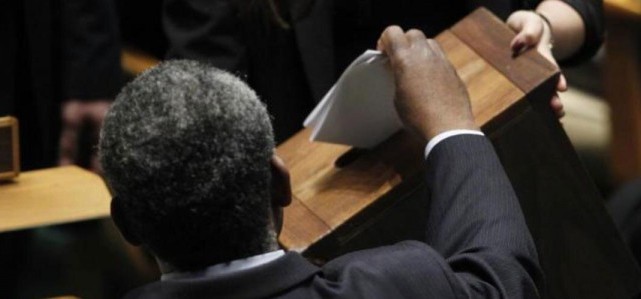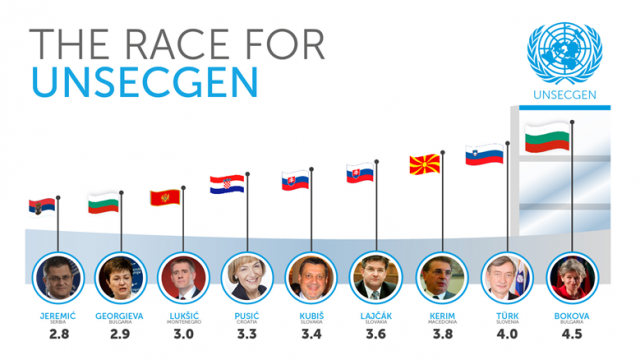My foray into policy blogging began with UNSG.org, where I covered the 2006 campaigns and selection of the UN Secretary General. It was an exciting and unprecedented public selection and I had the privilege getting to know some great people with whom I am still often in touch.
With the U.S. and China as the decisive votes in his selection, it was a given that the United Nations under Ban would return to a more traditional “intergovernmental” approach on global issues compared to Annan’s “supranational” framing of the organization’s role. After his first year however, concerns about Ban’s weak statements on international crises and management issues at the Secretariat began to arise. This grumbling increased by the mid-point of his five-year term with harsh reviews appearing in the Financial Times, The Economist, the London Times and Foreign Policy.
The August 2009 leak of a report by Norway’s Deputy Ambassador to the UN, Mona Juul, while not an official position of the Norwegian government, revealed that the criticism was not limited to editorial boards or even the UN staff union.
Some rose to the UNSG’s defense, arguing that perhaps “the so called super powers wanted someone like Mr. Ban Ki-moon” and got what they chose in selecting him or, as Ban himself has stated, that the job is near impossible without political support from member states. Others dismissed this, pointing out that Ban’s predecessors faced similar political constraints but “have made an impact, by dealing with the Security Council, by trying to push the debate forward” and that Ban’s quiet approach is simply not effective.
Ambassador Juul’s memo included strong language not only about Ban’s inabilities but also the possibility that he would not be granted a second term in the post. In describing UNDP Administrator Helen Clark as an exception to Ban’s lackluster appointments, Juul suggested that “Clark could soon turn into a candidate for Ban’s second term.”
Juul also noted “rumours” that reflected earlier views that Ban was the choice of Bush/Rice/Bolton team, and that
…in certain quarters in Washington Ban is referred to as a ‘one term SG.’ It is understood that people in the circles of Susan Rice and Hillary Clinton are very negative to Ban, but neither of them has given any declarations.
Juul suggested that Russia is none too happy with Ban (likely over his early non-action toward Kosovo’s declaration of independence) but may not oppose a second term of the “not too-interventionist Secretary-General.” She described China as still “positive” toward Ban, the first Asian UNSG since the 1960s, and as the country that “holds the key to Ban’s second mandate.” Ban’s silence on China’s recent execution of five Uighurs has been suggested as an effort to maintain the “positive” relationship with the veto-wielding permanent member.
Unfortunately, events since the barrage of criticism last summer have not been any more favorable to Ban. Continued criticism of the UN’s poor response to the war in Sri Lanka, the scandal over the MONUC peacekeeping force in the Congo, and the generally accepted failure of the Copenhagen summit – on which Ban had banked significant capital – continues to suggest Ban has significant work to do to overturn the image drawn by Juul’s report.
Ban has perhaps a year to achieve this before the Security Council takes up discussion of his reappointment in January or February 2011. As I will cover in an upcoming post, the membership of the Security Council at that time could present Ban either his best chance or most challenging obstacle.





Helen Clark has the skills to be SG – and she has an excellent relationship with China. Watch out Ban.